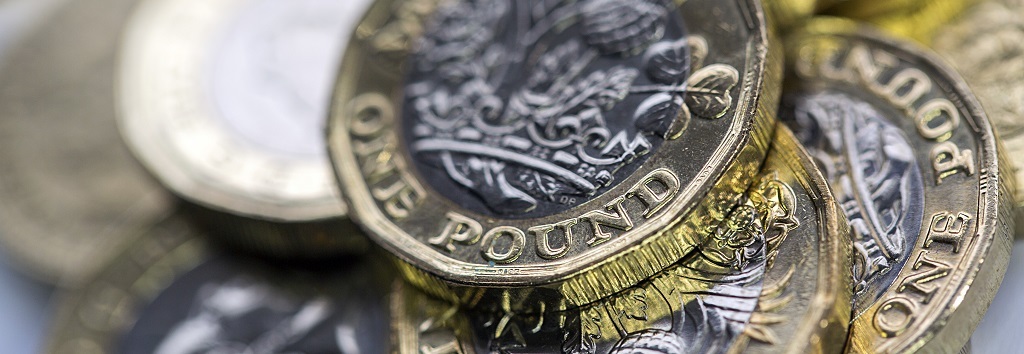
Look after the pennies and sort out the pounds
Whether it’s our stock market investments or our chaotic personal finances, we should all be getting to grips with our financial problems and putting us on a course for recovery.
Bills have to be paid, credit card debts wrestled with and our spending horns drawn in to give our finances some semblance of recovery. But it’s just at times when our affairs are at our worst that we can prepare a credible, realistic assessment of where we stand and draw up a plan for the future.
Here I set out ideas for a healthier, wealthier and less worrisome year. Often the very existence of a plan, no matter that it may take a while before improvement starts to set in, can help to lessen anxiety and give us a modicum of confidence where before there was despair.
Step one is getting our monthly finances in order. Take a sheet of paper. Draw a line down the middle. Call the left hand column ‘Stops’ and the right hand column ‘Starts’.

We all need to keep an eye on our outgoings
There is no list of regular outgoings that cannot be pruned – and in some cases stopped altogether. Check the list of direct debits and see which ones can be stopped or replaced by a less costly alternative. If you are an online shopping addict, put a stop on visits after 6pm. Use a ‘wish list’ instead of piling items into the shopping basket and allow time to pass before reviewing the list. This can help curb impulse buying.
For hobbies such as gardening, set a monthly limit on the amount you spend, allowing for spring and early summer peaks, and stick to it. Ditto for items such as travel and eating out.
Keep the list of ‘stops’ realistic and don’t make a long list of ambitious savings that leave you failing after a few weeks. Best to stick to a small list of items you can achieve.
In the column headed ‘starts’, review your banking, building society and credit card arrangements. If you have a deposit or savings account, check on which? Or Martin Lewis’s website www.moneysavingexpert.com.
Set aside an amount each month for saving and build this into your outgoings. Here again, it is best to start small and build a regular amount, adding later on when possible. It’s the regularity that makes the difference – and which will boost your financial confidence.

Scottish Field’s finance expert Bill Jamieson
Check that you are taking advantage of tax efficient savings and pension plans. Remember that, following the introduction of the personal savings allowance in 2016, basic rate (20%) taxpayers can earn £1,000 a year in interest without paying tax on it. The figure for higher rate (40%) taxpayers is £500. Anyone on the additional (45%) rate must pay tax on their interest at that rate.
You can invest your full £20,000 allowance in cash into an Individual Savings Account (ISA) this tax year (2017/18), or you can split your allowance in any division you like between cash and stocks and shares.
You do not have to make a big lump sum contribution. In fact, for those anxious about a stock market fall in the year ahead, feeding in regular monthly amounts over time not only helps the investor avoid poor timing but also enables investors to benefit through pound cost averaging: the average cost of units or shares over a period of time comes to less than the average price prevailing over this period.
Pensions – remember that you get substantial tax relief on any contributions you make and that your pension pot can accumulate in a tax-light environment. For basic rate taxpayers you save 20p in tax for every pound of pension contribution, rising to 40p in tax for every pound you contribute if you are a higher rate taxpayer. If you are an additional rate taxpayer, you save 45p in tax.

We all want to have more money in our wallets each month
In the current tax year, everyone is allowed to shelter up to £40,000 or 100 per cent of their earnings – whichever is less – from tax by making pension contributions in the current tax year. Unlike ISAs, you can also carry forward any unused annual allowance from the three tax years preceding this one.
And if your employer offers a workplace pension, you should join it as they will usually make contributions on your behalf in addition to any payments you make into the scheme.
All these are good ‘starts’ to ponder. And now is a good time to get your ducks in a row for an ISA scheme to start in the new tax year beginning in April.
What of investors who already have a portfolio of stocks and shares?
Our attitude to risk changes over time, and our view of the stock market is subject to a constant bombardment of news events, changes in inflation and interest rates, market trends and advice.
This may result in a switch in our asset weightings – putting more money in government bonds and fixed interest, for example, and less in equities. Our risk tolerance also tends to decline as we grow older. A useful rule of thumb is subtract your age from 100, leaving you with the percentage that your savings should be in equities.
In any event, a selection of shares you may have devised two years ago may look less appropriate now. After the strong runs in markets world-wide over the past year, many professional fund managers are apprehensive that the market may be due a correction and have been lightening their holdings.
Financial advisers expect to put less of their clients’ money into UK equities over the coming year as Brexit remains an ongoing concern for investors. A recent Adviser Survey by Schroders asked which Investment Association (IA) sectors advisers expect to recommend over 2018. Just 10 per cent said they would be tipping IA UK All Companies while the proportion backing IA UK Equity Income has collapsed to around two per cent.

Keeping a track on your expenditure can be a massive help
This comes as advisers flagged Brexit as the biggest concern for their clients over the coming 12 months. Other areas of concern that advisers drew attention to included geopolitical risks such as the tension between the US and North Korea, political disruptions, increased regulation and inflation.
At the same time, there has been a big jump in the number of advisers looking at global and European equities while multi-asset sectors also remain popular with advisers.
John Wyn-Evans, investment guru at wealth manager Investec, also believes that we are nearing the end of this market cycle.
Any spike in volatility would cause market disruption. According to data from Empirical Research, stability has a habit of encouraging complacency. Investors take on more and more risk in pursuit of returns. Once risk becomes more evident again, bets are swiftly removed from the table, which further increases volatility and forces more people to withdraw from the market.
‘Markets can suddenly start falling precipitously,’ he warns. His metaphor is vivid: ‘Shares go up on the escalator, but go down in the lift.’
We may not be able to avoid all the pitfalls that lie ahead, but we can take action this month to avoid some of the worst.
TAGS

